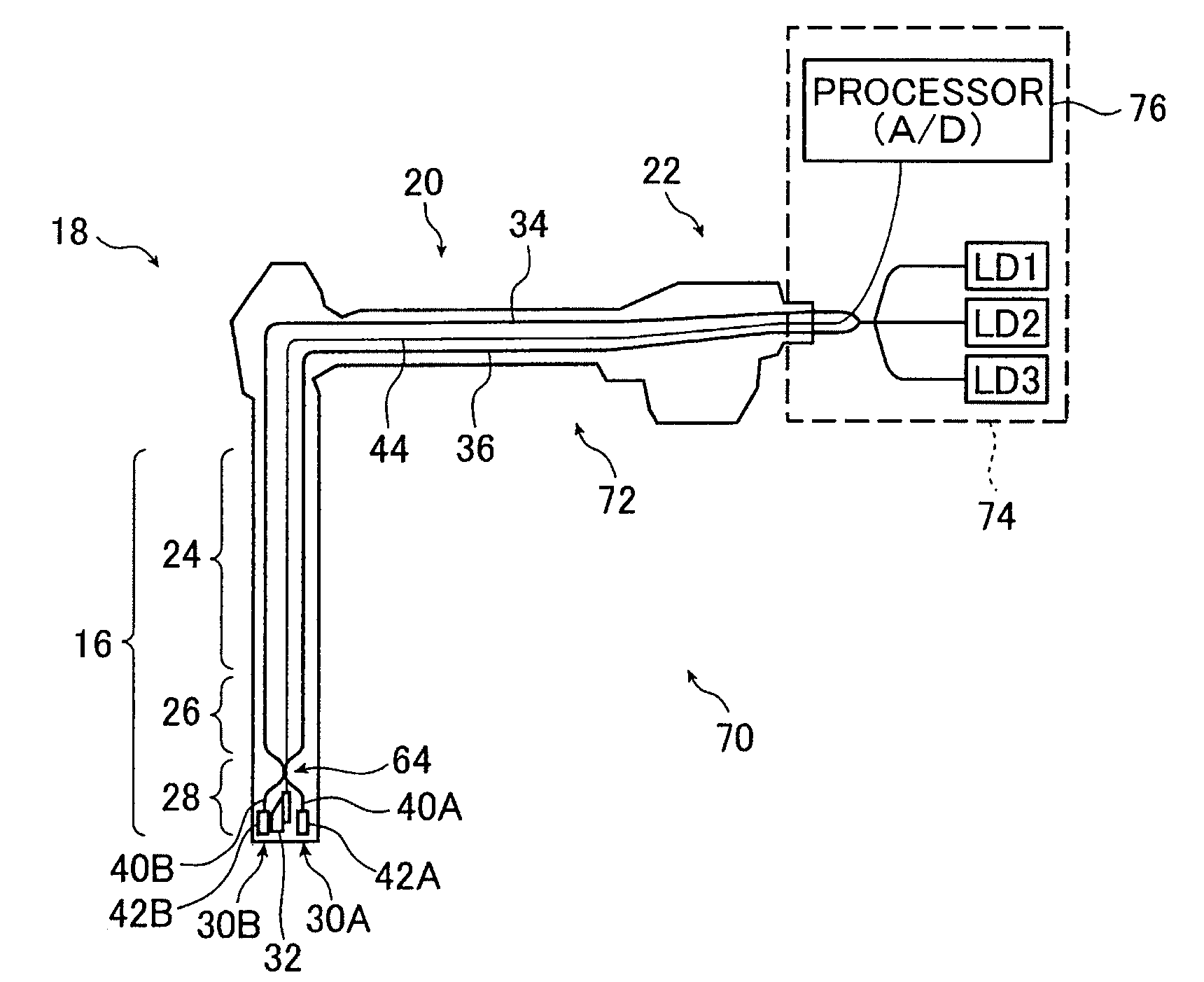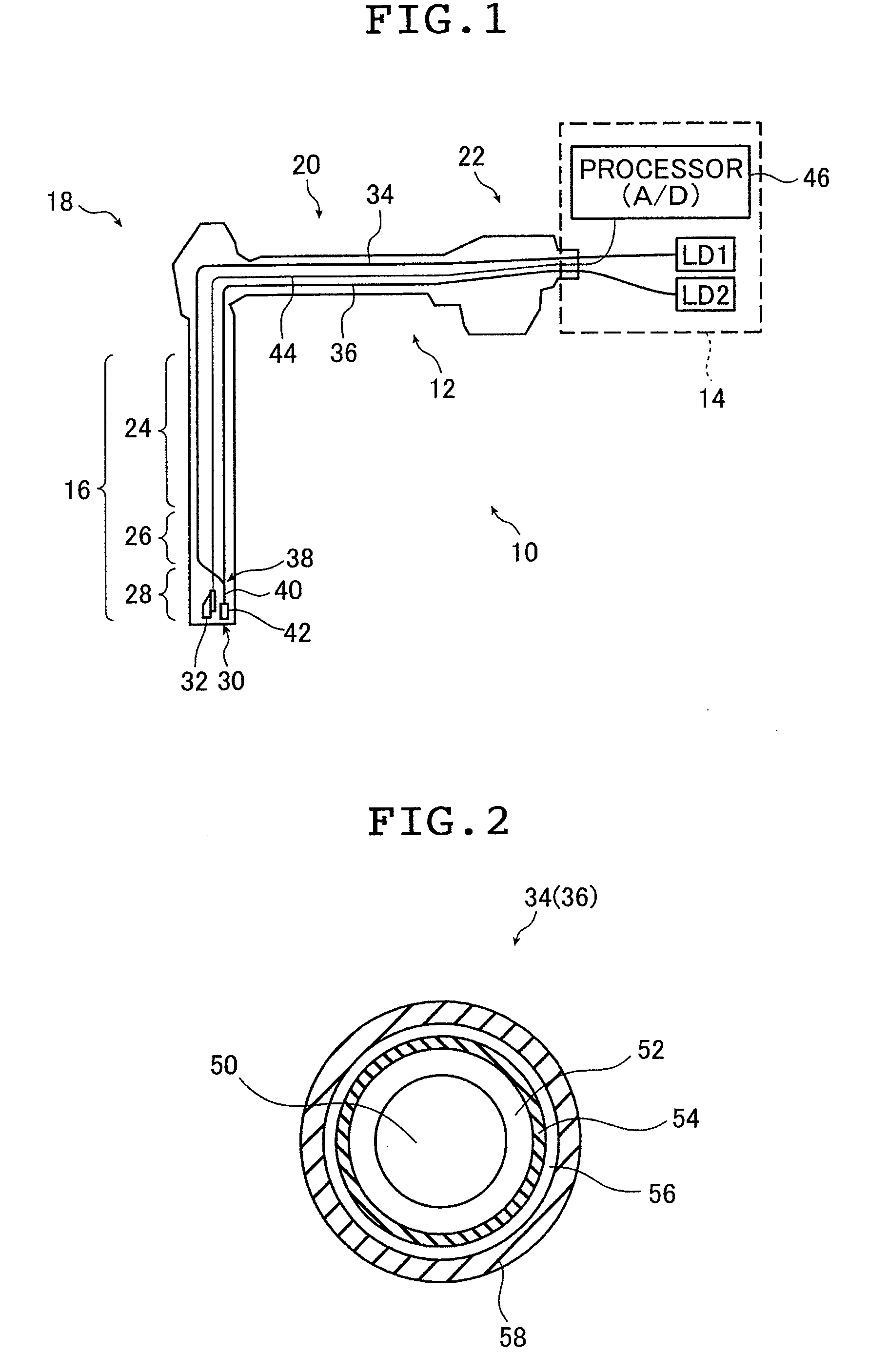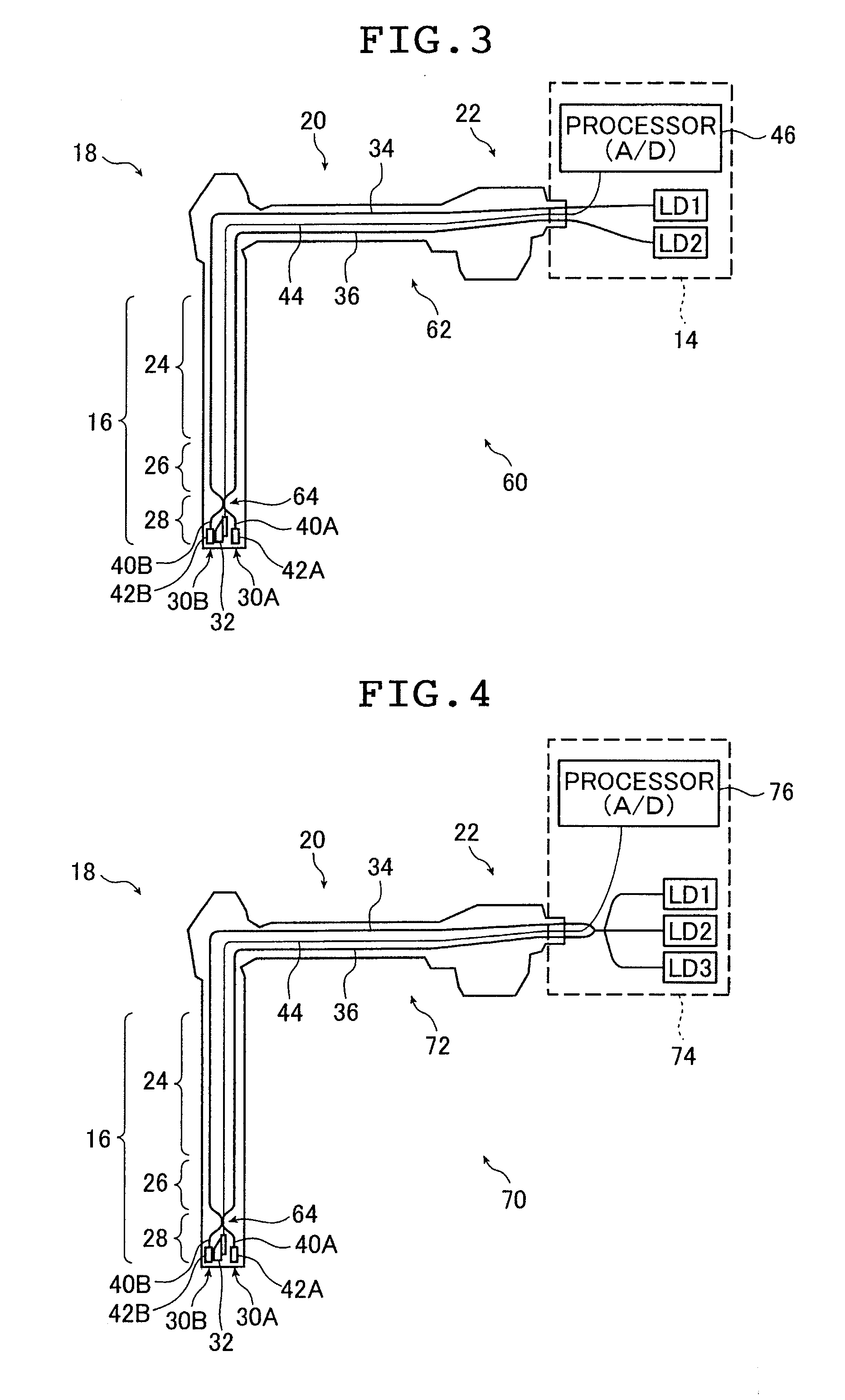Endoscope light source device
- Summary
- Abstract
- Description
- Claims
- Application Information
AI Technical Summary
Benefits of technology
Problems solved by technology
Method used
Image
Examples
first embodiment
[0032]First, the present invention is described.
[0033]FIG. 1 is a schematic diagram illustrating a first example of an endoscope system using an endoscope lighting device according to the present invention. An endoscope system 10 illustrated in FIG. 1 includes an endoscope 12 and a control device 14. In FIG. 1, the endoscope 12 is illustrated with a schematic cross-sectional diagram, and an image optical system arrangement and an optical path inside the endoscope 12 are illustrated.
[0034]The endoscope 12 is a so-called electronic endoscope that has a compact television camera (CCD) at a distal end thereof, and transmits acquired image information to the control device 14 as an electric signal.
[0035]The control device 14 includes two semiconductor laser light sources (semiconductor light emitting elements) LD1 and LD2, and a processor 46. The processor 46 converts an electric signal (imaging signal) that has been transmitted from the endoscope 12 into a digital image signal (video si...
second embodiment
[0059]Subsequently, the present invention is described.
[0060]FIG. 3 is a schematic diagram illustrating a second example of an endoscope system using an endoscope lighting device according to the present invention. An endoscope system 60 illustrated in FIG. 3 emits illumination light beams from two points at the distal end of the endoscope 62.
[0061]In many of existing general endoscopes, illumination light beams are emitted from two points at the distal end of the endoscope in order to prevent an oversight due to illumination unevenness or shadow within the field of view. The endoscope system 60 provides such a two-lighting type endoscope light source device.
[0062]The endoscope system 60 is identical in configuration with the endoscope system 10 described above with reference to FIG. 1 except for the configuration of the distal end portion 28 of the endoscope 62. In FIG. 3, the same components as those of the endoscope system 10 of FIG. 1 are denoted by identical characters, and the...
third embodiment
[0069]Next, the present invention is described.
[0070]FIG. 4 is a schematic diagram illustrating a third example of an endoscope system using an endoscope lighting device according to the present invention. An endoscope system 70 illustrated in FIG. 4 includes an endoscope 72 and a control device 74. The endoscope 72 is of the same configuration as that of the endoscope 62 in the endoscope system 60 of FIG. 3, and emits two illumination light beams from the distal end. The control device 74 is different from the control device 14 in the endoscope system 60 of FIG. 3 in that three semiconductor laser light sources are provided.
[0071]When three or more semiconductor laser light sources LDs are provided, one optical fiber may be connected to each of the light sources so as to cause the optical fibers to guide light up to the distal end portion of the endoscope 72. However, the optical coupling / branching circuit 64 becomes larger in size as the number of optical fibers increases. In addi...
PUM
 Login to View More
Login to View More Abstract
Description
Claims
Application Information
 Login to View More
Login to View More - R&D
- Intellectual Property
- Life Sciences
- Materials
- Tech Scout
- Unparalleled Data Quality
- Higher Quality Content
- 60% Fewer Hallucinations
Browse by: Latest US Patents, China's latest patents, Technical Efficacy Thesaurus, Application Domain, Technology Topic, Popular Technical Reports.
© 2025 PatSnap. All rights reserved.Legal|Privacy policy|Modern Slavery Act Transparency Statement|Sitemap|About US| Contact US: help@patsnap.com



